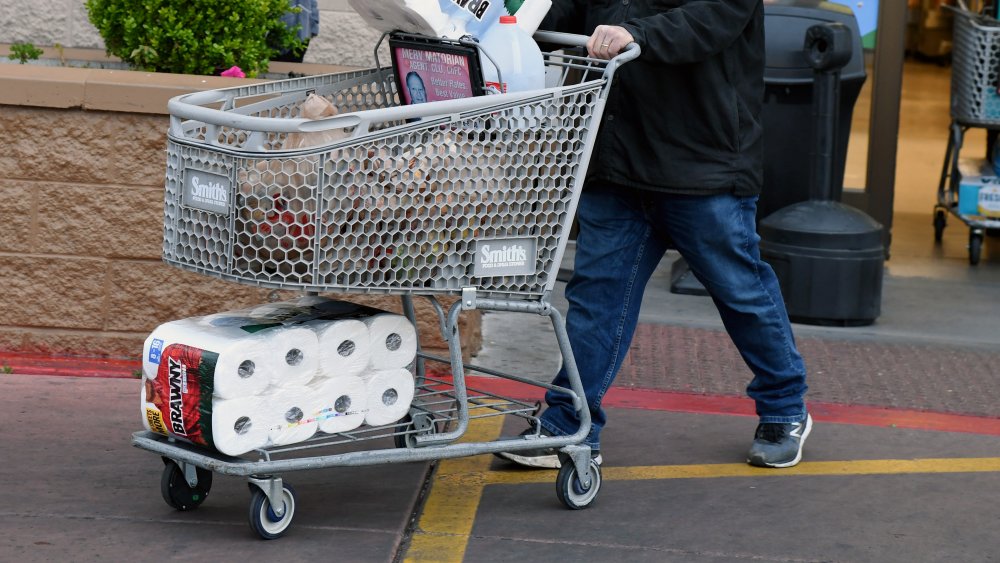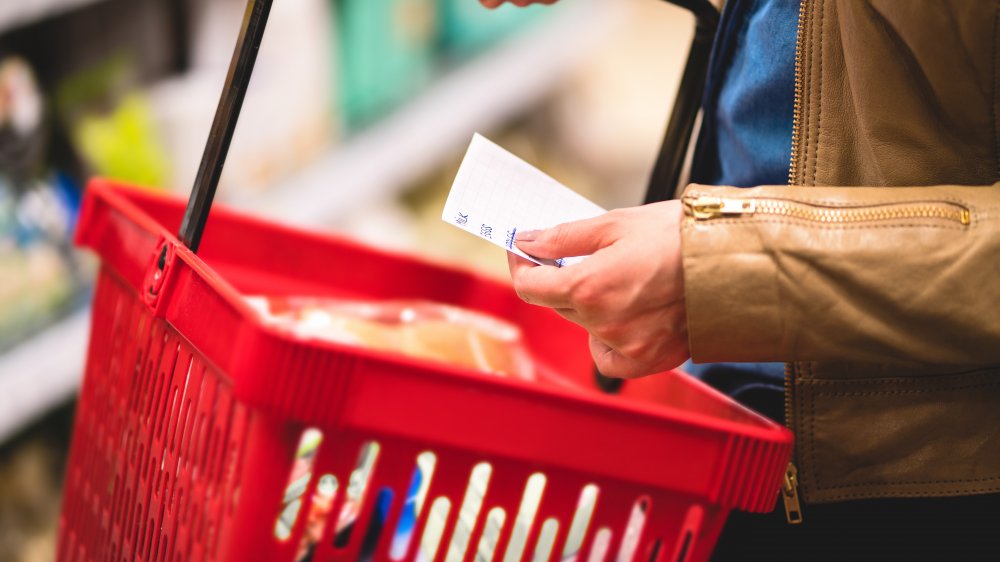The One Thing You Probably Haven't Noticed About Grocery Shopping Carts
If you have this feeling that your shopping cart is getting bigger, we're here to tell you that it's not your imagination. In fact, shopping carts have been growing since they were first invented around the 1930s by a supermarket magnate named Sylvan Goldman, who was worried shoppers (mostly women) wouldn't buy more than they could carry in their hand baskets. His earliest solution was to create a two-tier trolley that could navigate supermarket aisles. When asked about his invention, Goldman said back in 1970, "When the housewife got her basket full, it was too heavy for her to carry and she stopped shopping. I thought if there was some way we could give the customer two baskets to shop with and still have one hand free to shop, we could do considerably more business" (via Fast Company).
Presently, cart suppliers like Shopping Cart Mart offer a range of sizes, and while they are meant be a way to offer customers added convenience, supermarket carts do something else: they give shoppers a reason to buy more. Even people who consider themselves savvy shoppers are inclined to pop more into their carts if they come in a bigger size, with one marketing consultant Martin Lindstrom telling Today that consumers bought as much as 40 percent more with a cart twice the size.
Experts say a shopping basket presents a different set of problems
But skipping a cart in favor of a basket isn't guaranteed to ensure that you'll walk out of the supermarket without picking up more than what you need. In fact, a group of European professors have suggested that using a shopping basket makes a shopper more inclined to pick up what they call "vice products" (we call them junk food) like chips, candy, or soda.
Another set of research indicates that shoppers are more likely to pick candy instead of fruit when they hit the store with a shopping basket. In both instances, researchers actually say that the odds of buying junk food increases by nearly seven times, because when shoppers carry a basket, they could also be expressing an unconscious need to reward themselves for the arm strain (via Time).

